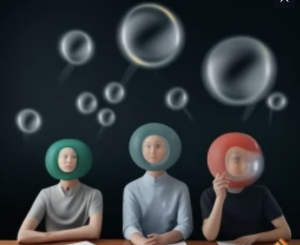Happiness is an addiction and we are hooked. Happiness is an addiction because our monkey mind convinces us that we are not okay if we don’t get our fix of it. It is an addiction because it provides relief for short periods of time and then fails us over and over again. It is an addiction because we are consumed with the need to be happy. We spend an enormous amount of time and energy trying to make happiness happen, and yet we often remain not happy, that is, not liking our life situation.
There is a belief in this culture that life is supposed to be happy; happiness is part of our definition of a good life. In the face of the suffering that everyone’s life contains, we hold tight to our belief that life’s basic nature is pleasurable and fun. The media presents life as some kind of amusement park ride with ice cream, laughter and prizes. Our conception of what we are supposed to feel is based on a life that is not in alignment with what’s real. Certainly, a part of life is joy. Life is also challenging and painful at times. All of these experiences are part of the ride. We have to do things that we don’t want to do, we have to interact with people who hurt us, we have to live inside a body that gets sick, and eventually we have to let go of everything and everyone we love. Expecting a joy ride is a recipe for disappointment. And yet, remarkably, the cultural mythology persists: life is supposed to look good, and we are supposed to be having fun all the time.
In this society, when we are not happy, not only are we failures for not being able to create a happy life, but worse, we are missing out on the myth. We are not getting what we deserve—what everyone else undoubtedly gets, the life that appears so convincing in our Instagram feed. With such a cultural mythology, we spend much of our time feeling depressed about not getting to have something that doesn’t actually exist, thereby fueling the un-happiness that we so dread.
I was one who suffered with this belief system in my younger years. A friend and fellow sufferer called it her “Kennedy” life. We are convinced that for other people, life is one long series of touch football games held on large glorious lawns with large glorious extended families, and golden retrievers joyously chasing blond toddlers in playful tackle. When we are reminded that the Kennedy family has also endured tragedy—violence and loss—we take the information in, but only on an intellectual level. We know that the Kennedys have suffered, but still our touch football expectation of life endures. In fact, we struggle to retain this fantasy. It makes us un-happy, but at the same time, we are afraid to stop trying to get happy.
We make strong judgments about the person who achieves happiness and the one who doesn’t. Happiness is our flag of success. Not being able to accomplish it means that there is something wrong with us.
As a result of these beliefs, we are left in a desperate state. We must be vigilant in controlling our experience, making sure that life feels good and that others know it’s going well. But making the present moment feel good is a lot of work. Happiness is a narrow destination at which to aim our life with an even narrower selection of paths for getting there. We have balanced our okay-ness on something as ephemeral and uncontrollable as situational pleasure, and bet our wellbeing on our ability to keep it—with no net below if we fall or fail. We dedicate the majority of our energy to achieving something that we cannot consistently achieve. From a purely logical perspective, it seems that it would be wise to re-examine our goal.
Our attempts to be happy are not the problem. The problem is that we are not aware of a workable alternative to happiness. As we see it, the only alternative to happiness is misery or emptiness. We do not know how to be without happiness and still be okay, whole, present, or even that it is possible.
Not happy is not a place where we know how to console ourselves, and not a place where we can be peaceful or feel good about ourselves. We are given no training in how to ease our discomfort, soothe our sadness, simply be with discomfort, as if these states were not a part of a regular life, a good life. We are instructed to keep our chin up, make lemons out of lemonade, get on with it. Or put another way; get away from it—whatever is making us not happy, and get out of our state of not-happiness. We have not been taught how to take care of ourselves and be in and with our not-happiness in a way that can still leave us feeling well.
We are trained to believe that not-happiness is a scary thing, not only because we do not know how to manage it, but also because it makes us unlovable. We are scary to others when we are not happy; it is not just that we are afraid of ourselves but others are afraid of us as well. We believe that not-happiness leaves us helpless and abandoned, and therefore it must be avoided at all costs.
We have designed a system that demands that we stay happy; it is a system that relies upon our control over something that ultimately cannot be controlled. And the alternative, not happiness, is dreadful, frightening and riddled with self-loathing. Despite the consistently transient, challenging and uncontrollable nature of life, we continue to insist that life can be and indeed is ceaselessly pleasing; we continue to demand and expect happiness.
Over the next few weeks I will be examining the ways in which we attempt to create a constant state of happiness, and how that impacts the quality of our lives. And also, I will be presenting a more reliable and satisfying approach to genuine wellbeing. Stay tuned…
Text excerpted from Nancy Colier’s “Inviting A Monkey To Tea: Befriending Your Mind And Discovering Lasting Contentment” (Hohm Press, 2012)


